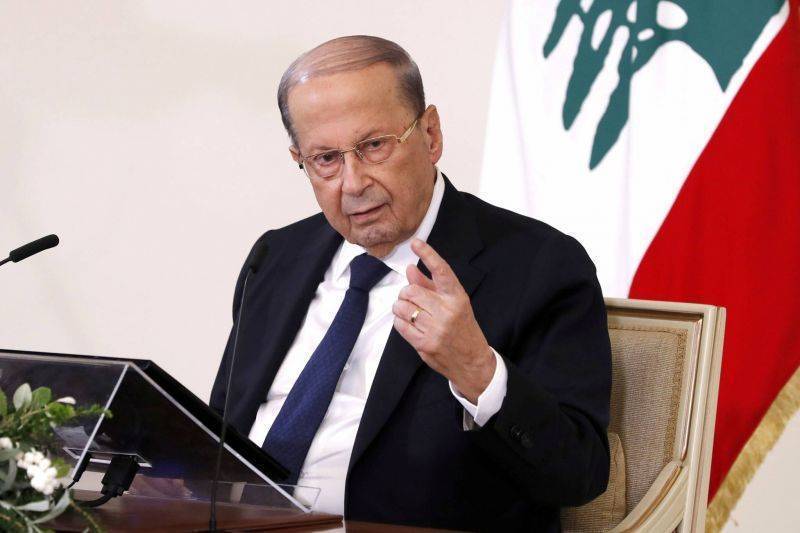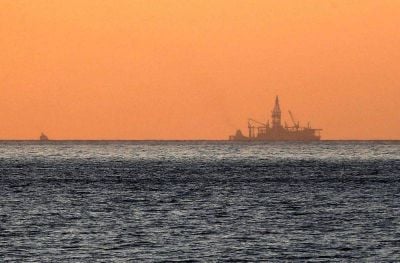
Former President Michel Aoun. (Credit: Dalati and Nohra)
BEIRUT — Former President Michel Aoun said Tuesday that Lebanon would need to wait "three to four years" to know the quantities of any gas in offshore blocks, following a landmark maritime border demarcation deal with Israeli authorities in October.
Many observers had hoped that the prospective gas blocks could bring in future revenue for Lebanon amid its economic crisis, as much of the country plunges into poverty. One recent Human Rights Watch report found Lebanon's median household income is now just $122 per month.
Chairing the meeting of the “Strong Lebanon" parliamentary bloc Tuesday, Aoun noted that “if the current ruling class does not change, there will be no homeland," noting that Lebanon will not be rebuilt “by the current ruling class,” according to quotes published in the state-run National News Agency.
The Lebanese government announced in September that it would take over the 20 percent share vacated by Russian energy company Novatek, which had pulled out of a consortium licensed to explore two offshore oil and gas blocks.
Lebanese officials said the decision was necessary to allow exploration to continue and that the state stands to profit from its 20 percent share if — as many are hoping — significant reserves of natural gas are found.
But some analysts say it is a risky proposition since cash-strapped Lebanon could end up on the hook for millions of dollars without any return on its investment if the drilling fails to turn up gas.
